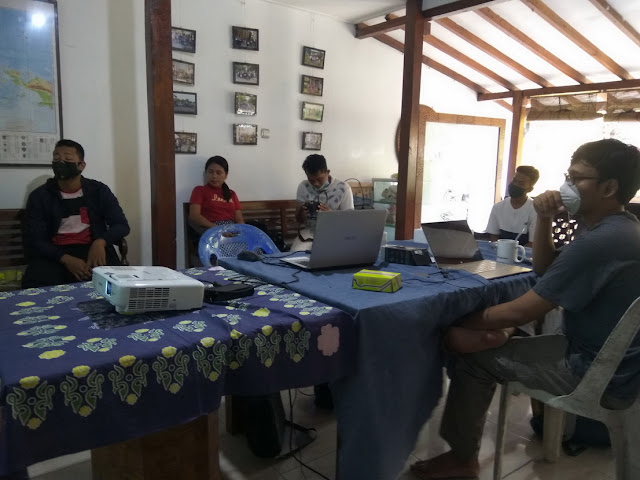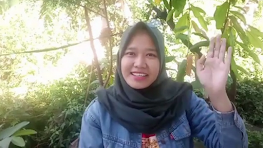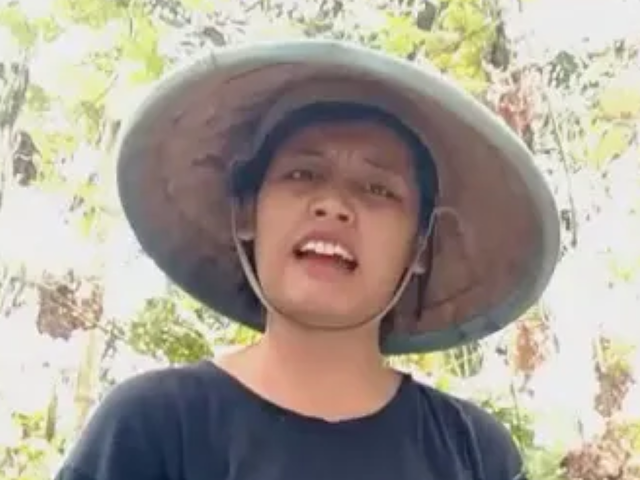The pandemic that has hit the world including Indonesia throughout this year has become a whip for the people to implement a healthy lifestyle and a clean environment. The government has warned them for a long time, but this habit just become important since the outbreak hit. As part of society, students cannot be separated from this case to implement a clean lifestyle in their daily life.
Stube HEMAT Yogyakarta as a mentoring student institution from various regions who are studying in Yogyakarta encourages students to pay attention to health condition not only at their place to study, but also observe health problems at their hometown, learn and find ideas to solve the local problems with the local community. In the previous meeting, the participants formed groups according to their origin and carried out a mapping of health problems accompanied by the Yogyakarta Stube-HEMAT team, then they presented the mapping results virtually on November 3, 2020, with health practitioners Sukendri Siswanto, S.Pd., M.Kes., Head of Primary Health Division in Bethesda Community Development.
The mapping results of the Sumatera region group, especially the North Nias group found many swamps area and houses with a dirt floor, that makes them prone to skin diseases, dengue fever, and diarrhea. Health services and facilities still need to be improved, besides, there is an unhealthy habit of eating directly without washing hands. The Central Lampung group revealed that dengue fever is a dominant health problem because the area is often flooded and people rarely clean the environment except during together work. Furthermore, the Mentawai group identified problems with malnutrition, sanitation, and lack of clean water.
The Nusa Tenggara region, especially the Sumba group, detected dengue fever, malaria, and diarrhea that occurred this year, while the Manggarai group found that maternal and infant mortality rates were still high and the availability of latrines was not evenly distributed in every house. Regarding malnutrition and stunting, it is better to take precautions in addition to treatment by utilizing local food that supports family needs. Moringa leaves can be used to improve nutrition as well as nutrition for pregnant women because of their good nutrition. Some alternatives that can be done are planting vegetables in the house yards, mobilizing Posyandu (health service) cadres to monitor the health of mothers, social support for mothers, and the unborn baby.
The Konawe of Southeast Sulawesi group found sore throat, lung, and persistent cough. One of the health journals revealed that such diseases were caused due to poor housing conditions, lack of air circulation, and sunlight. The next question is what the people can do, moreover those who do not have a medical background to see the surrounding conditions to ensure that the environment is maintained, and the residents are aware to adopt a clean and healthy lifestyle. If the environment is vulnerable to TB and its symptoms, such as persistent coughing, night sweats, weight loss, so the actions that can be done are motivating people with these symptoms to go to health services and ensuring that they get medical services.
The health problems in the Aru Islands with their typical stilt houses above the swamp and tidal areas are revealed with the lack of awareness of the local people to manage garbage in rubbish bins, they just threw them away under the house. They think the tides will wash them away, but in fact, when the sea recedes the garbage will settle, caused unhealthy spots, and become mosquito breeding grounds.
The Central Java group, especially Brebes and Cilacap regency found that the Maternal Mortality Rate (MMR) in childbirth and the Infant Mortality Rate (IMR) who were born were still high. One of the reasons is the low awareness of maternal and family health, unequal immunization received by mothers, babies, and children in the local area which is triggered by weak economic capacity, slum areas, and a wrong understanding of immunization. The disease that occurs is Thypus due to poor sanitation, unclean food processing, and weak handwashing behavior. It can be overcome by improving household sanitation, processing foodstuffs with running water, and using clean utensils.
The findings above can be grouped into three types, first, infectious diseases such as diarrhea, tuberculosis, malaria, and dengue fever. Second, non-communicable diseases (NCDs) such as cholesterol, gout, hypertension, and stomach acid. Third, malnutrition among mothers and children and stunting. Each requires integrated treatment from health workers and the non-medical community.
Through mapping on health problems at their hometowns, students are invited to hone their sensitivity and analytical skills as well as foster empathy for the reality around them. Even finding alternative solutions as answers to health problems that occur in Indonesia.***













































































































































































































































Comments